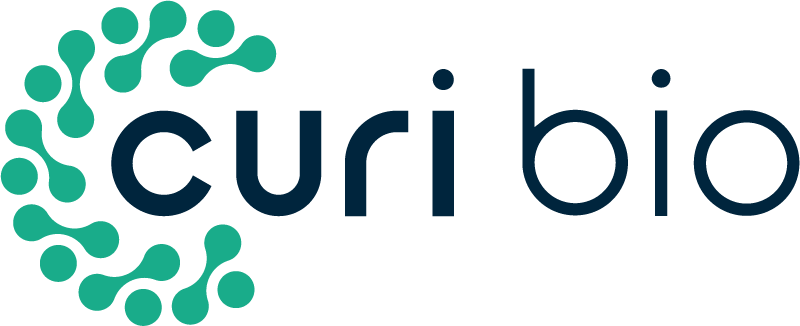Curi Bio Awarded Over $4.4M in NIH Grants to Advance Translational Science
Seattle, WA – [Originally Posted in BUSINESS WIRE – August 23, 2023] - Curi Bio, the industry leader in developing human stem cell-based platforms for drug discovery, proudly announces two recent SBIR grants worth $4.4 million from the National Institutes of Health (NIH) to support its pioneering work on implementing human models to advance discovery of the next generation of medicines. The first project will support expansion of Curi’s cutting-edge in vitro human muscle platform by developing mouse model engineered muscle tissues (EMTs) to bridge the inconsistencies between animal and human data. The second initiative will deliver a novel 3D neuromuscular junction used for disease modeling and potency assays for pharmaceuticals and cosmetics. These grants, the first of their kind received by Curi Bio from the National Center for Advancing Translational Sciences (NCATS), demonstrate the impact that the company's innovative 3D tissue platforms have made in developing new medicines. These latest awards bring the total non-dilutive funding that Curi Bio has received from the NIH to over $12 million.
Curi Bio's outstanding success in raising non-dilutive funding via its scientific and technical innovation has been recognized by the U.S. Small Business Administration (SBA), which selected the company as the winner of the 2020 Tibbetts Award. The Tibbetts Award is given to outstanding entities for successfully driving high-tech innovation in the U.S. through the SBA’s Small Business Innovation Research (SBIR) and Small Business Technology Transfer programs. Past awardees include 23andMe, Qualcomm, Symantec, and Broadcom.
The company’s first award is focused on developing new in vitro models to address Duchenne muscular dystrophy (DMD), a devastating childhood disease with no known cure and with only a handful of available treatments. During the over $2.3M, two-and-a-half-year project, the company will refine its first-and-only 3D DMD model for use in potency assays, which have been a much-needed tool to address manufacturing bottlenecks and clinical holds amongst the many organizations pursuing novel therapies for the disease. The team will also develop unique 3D engineered heart tissue models based on an industry standard DMD mouse model, enabling drug developers to correlate their decades of mouse data to Curi Bio’s next generation human in vitro models, moving research towards the 3Rs principle of reducing, refining, and replacing animals for preclinical studies. The award is the next advancement from a long-standing collaboration with two investigators at the University of Washington: Dr. Jeffrey S. Chamberlain, a pioneer in DMD therapies whose previous work is already in the clinic, and Dr. David L. Mack, a global authority on neuromuscular diseases and human stem cell and whole-animal models.
The second project, awarded by NCATS in conjunction with the Food and Drug Administration as a milestone-based project, is aimed at the pressing need for animal-free potency assays in drug manufacturing. In addition to its many cosmetic uses, Botulinum neurotoxin, commonly known as Botox, is used to treat muscle spasms, chronic pain, and other therapeutic applications. With Botox being the most potent toxin known to man, safe and effective dosing relies on accurate methods to assess the potency of manufactured lots. Current practices utilize the mouse lethality bioassay, which is at odds with regulatory strategies striving to implement the 3Rs. Curi Bio will develop a novel neuromuscular junction model from human stem cells that can measure the effect of the toxin based on a high-throughput assay that can be readily adapted to study myriad neuromuscular disorders. This work will be performed in conjunction with the laboratory of Dr. Alec Smith and Dr. David Mack at the University of Washington, Seattle.
"These awards from the NIH represent a major validation of the importance of our innovative platforms in advancing pre-clinical research and developing sorely needed potency assays for the next generation of medicines," said Dr. Nicholas Geisse, CEO of Curi Bio and Principal Investigator on both awards. "We are honored to receive this recognition from NCATS and are committed to leveraging this funding to drive our internal R&D efforts forward, furthering our mission of accelerating the safe and effective development of new therapeutics.”
The prestigious Fast-Track grants, which amount to a total more than $4.4 million over a two-and-a-half-year period, will provide Curi Bio with the necessary resources to propel its groundbreaking research in DMD as well as development of a Botox potency screening assay using a novel neuromuscular junction model. With this substantial funding, Curi Bio aims to accelerate the commercialization of its next generation 3D EMT platforms as powerful research tools for drug developers and biopharmaceutical companies.
Research reported in this press release is supported by the National Center for Advancing Translational Sciences of the National Institutes of Health under Award Numbers R44TR004557 and U44TR004795. This content is solely the responsibility of Curi Bio and does not necessarily represent the official views of the National Institutes of Health.
About Curi Bio
Curi Bio’s preclinical discovery platform combines human stem cells, systems, and data to accelerate the discovery of new medicines. The Curi Engine™ is a comprehensive, bioengineered platform that integrates human iPSC-derived cell models, tissue-specific biosystems, and AI/ML-enabled phenotypic screening data. Curi Bio’s suite of human stem cell-based products and services enable scientists to build more mature and predictive human iPSC-derived tissues—with a focus on cardiac, musculoskeletal, and neuromuscular models—for the discovery, safety testing, and efficacy testing of new drugs in development. By offering drug developers an integrated preclinical platform comprising highly predictive human stem cell models to generate clinically-relevant data, Curi Bio is closing the gap between preclinical data and human results, accelerating the discovery and development of safer, more effective medicines.
For more information, please visit www.curibio.com.

